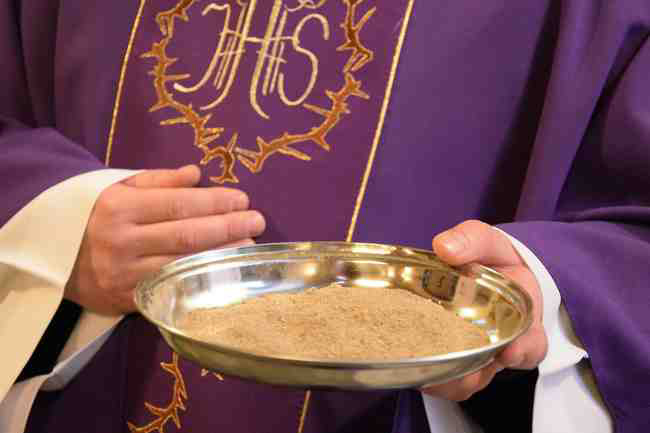Lent: A Season of Love
From the Anglo-Saxon Lencten, meaning springtime, Lent is the 40–day period of prayer, penance, and spiritual endeavour in preparation for Easter. Lent is not an end in itself; it exists only to lead to the paschal feast and so can be rightly understood only in the light of Easter. Easter gives meaning to Lent and shows it for what it is: the great paschal retreat of the Church. To put it in the words of the Constitution on the Sacred Liturgy n.109 ‘‘The season of Lent has a twofold character: primarily by recalling or preparing for the celebration of Christian Initiation and by penance, it disposes the faithful, who more diligently hear the word of God and devote themselves to prayer, to celebrate the Paschal Mystery’
Lent is unquestionably a time of penance, of asceticism, of spiritual discipline. However, making these things ends in themselves can obscure the real purpose of Lent. The accumulated evidence of Christian tradition in this regard shows without any doubt that the real aim of Lent is, above all else, to prepare Christians for the celebration of the death and RESURRECTION OF CHRIST. This celebration is not a matter only of commemorating the historical fact of the redemption of the human race, but even more of a reliving the mystery of Redemption in all its fullness.
Consequently, the better the preparation, the more effective the celebration will be. One can effectively relive the mystery only with purified mind and heart. The purpose of Lent is to provide that purification by weaning all of humanity from sin and selfishness through self-denial and prayer, by creating in them the desire to do God’s will and to make His kingdom come by making it come first of all in their hearts.
Lent is then I would call it a retreat of 40 days, a time to live in the spirit of his Baptism, a time of penance in the ancient sense of repentance, metanoia – change of heart and mind, conversion. The season of Lent begins with the Ash Wednesday. What does that mean?
At the Ash Wednesday Mass, the Priest marks the forehead of each faithful with an ashen Cross. Ashes remind us of humility (that we are dependent on God) and mourning, it also reminds of our mortality, the priest says, “Remember, that you are dust and unto dust you shall return” (Gen 3;19). It is a call to repentance; It also reminds us of our own mortality as well as the eternal life we share with Jesus through his Cross. The colour of the vestment of the priest and the altar is purple. The purple colour symbolizes pain, suffering and penance and royal dignity.
How to make this this LENT – meaningful and relevant in our lives?
This season invites all Christians to imitate Jesus. During Lent we imitate Jesus through self-denial, to free ourselves from selfishness in order to be more available to the needs of others. The three main pillars of the season of Lent are: Prayer, Fasting and Almsgiving. Pope Francis said in his Ash Wednesday homily, ‘Lent is also a privileged time for prayer’, He quoted St. Augustine, who described fasting and almsgiving as “the two wings of prayer,” because they are signs of humility and charity.
Prayer: Do we pray only in this season? In fact, prayer is the very foundation for why we as Christians move forward each day. This pillar is connected most especially to the virtue of faith, which we profess in the Creed every Sunday at Mass. Faith, is the free gift of God which invites us into relationship with Him. We nurture this seed of faith by our prayer every single day. It is imperative that during Lent we take more time to pray— listening for the voice of God and allowing Him to be the root of our being. In simple terms we communicate with him and try to understand the sorrow that the Lord underwent for my sake.
Fasting: How does this word sound? Many of us dislike right?However, this great key of Lent is intimately linked with the virtue of hope. Fasting during Lent opens a door to God and permits Him to enter into those particular areas where we’ve deprived ourselves of temporal goods and pleasures. May we never undervalue the source of grace from God that fasting allots for us. Someone had sent me the following message last year during Lent.
“At times our focus on external fasting by abstaining from, meat, alcohol, movie. It’s stomach- fasting. We need to move from stomach- fasting to mind –fasting and heart- fasting. Mind- fasting means say no to ego, prejudices, heart –fasting means, say no to anger, resentments, and unforgiveness which paralyses our heart.
Fast from anger and prejudices and become more loving and caring
Fast from laziness and become more studious and hardworking
Fast from dishonesty and lies and become more sincere in our approach
Fast from gossips criticism and become constructive in our praise and appreciation
Fast from alcohol, coke, Pepsi and smoking and junk food and develop healthy food habits
Fast from hatred, grudges, and return good for evil,
Fast from complaining and become more grateful,
Fast from resentment and become more forgiving,
Fast from media, addiction to social networking sites, T. V, mobile phone and become more personal in our relationships by spending more time with our near and dear ones,
Fast from pessimism and become more hopeful and optimistic, give up anger and become more patient, give up gloom and become more joyful.”
How realistic the season of Lent can be!
Almsgiving: All things are connected and aimed towards the key of almsgiving, or charitable works. The hands that are joined together for prayer before the altar must open in the service of others as we go out. Indeed, the virtue of love is bound up in this great pillar of Lent. Pope Francis says “Fasting makes sense if it really chips away at our security and, as a consequence, benefits someone else, if it helps us cultivate the style of the Good Samaritan, who bent down to his brother in need and took care of him.”
The season of Lent can be a meaningful one only if I cooperate with God who pours graces on us continuously. Our cooperation implies understanding his immense love for the humanity, “For God so loved the world that he gave his one and only Son, that whoever believes in him shall not perish but have eternal life” (John 3:16). We contemplate on the mystery of the Cross. We walk the way of the Cross and find meaning to our suffering and pain. Through the way of the Cross we understand that we are not alone in our life journey. He also walks with us. May our prayer, fasting and almsgiving be an expression of that unconditional and everlasting love.

Fr Anush D’Cunha SJ
Director
Loyola Jesuit Pre-Novitiate, Jail road, Mangalore








